LESC at COP25: Systems Transformation for a 1.5 Degree World
The Systems Transformation for a 1.5 Degree World event is a special edition of the Low-Emissions Solutions Conference taking place alongside COP25 in partnership with WBCSD, ICLEI, and the Pontifical Catholic University of Chile.
Location: Escuela Técnica Superior de Ingenieros Industriales, Universidad Politécnica de Madrid, Madrid, Spain
Date: Monday, 9 December (full day) and Tuesday, 10 December (half day)
With a dialogue between business, government and academia, LESC aims to help UNFCCC negotiators understand how to ramp up ambition on their NDCs and the technologies available to them to populate their Low Emission Development Strategies (LEDs).
This year's event at COP25 will build off the learning from the SDSN's Roadmap to 2050 A Manual for National to Decarbonize by Mid-Century report done in partnership with Fondazione Eni Enrico Mattei (FEEM). The report was written in consultation with more than 60 engineers to catalog the technologies currently available to decarbonize our power, transport, industrial and buildings sectors, and to highlight the sector coupling opportunities available with a systems approach.
By showcasing successful case studies with collaborative storytelling, LESC provides an area alongside COP for collaborative brainstorming, problem solving, and knowledge sharing.
The 2019 LESC will bring together leaders and scientists from businesses, governments, and academia from around the world. The agenda will be built around Low-Emission technologies within the following clusters:
- Low Carbon power Generation and Distribution
- Zero-Carbon Cities
- Harder to abate industrial processes (steel, cement and petrochemicals etc.)
- Transport and Shipping: Land, Air, Water
- Systems Approach and Sector Coupling
- Defining Metrics: Ensuring Impact for Sustainable Development
Agenda
09 Dec 8:45AMRegistration
09 Dec 9:15AMWelcome Remarks
Guillermo Cisneros, Rector, Universidad Politécnica de Madrid (UPM)
Masters of Ceremony for Entire Event:
Ruth Carrasco, Associate Director for the SDGs, Industriales UPM
Fernando Valladares, Research Professor, Spanish Council for Scientific Research (CSIC)
09 Dec 9:30AMOpening Keynotes
Juan Carlos Jobet, Minister of Energy, Chile
Jeffrey Sachs, Director, SDSN
09 Dec 10:15AMSetting the Scene: Roadmap to 2050
Paolo Carnevale, Director, FEEM
Maria Mendiluce, Managing Director, WBCSD
Kobie Brand, Regional Director for ICLEI Africa; Director of ICLEI Cities Biodiversity Center
09 Dec 10:45AMCoffee break
09 Dec 11:00AMLow Carbon Power Generation and Distribution
This session will bring together engineers, companies, and policy makers to discuss the role of new technologies for low-carbon power generation in the future, which solutions will be available to provide flexibility to support a large-scale integration into electricity systems by generation from non-dispatchable RES; and which policies and strategies can support the development and deployment of these new technologies.
Manfred Hafner, Coordinator of the Future Energy Research Program, Fondazione Eni Enrico Mattei (FEEM)
Joan Herrera, Director of Energy and Environment, Prat de Llobregat
Santiago Gómez Ramos, Energy Management Director, Acciona
Daniela Mastrangelo, General Director of Innovation and Environmental Quality, City of Rosario, Argentina
Ana Quelhas, Head of Energy Planning, EDP
Jatna Supriatna, Professor, University of Indonesia
09 Dec 12:15PMTransport and Shipping: Land, Air, Water
This session will focus on the harder to abate transport modes, such as heavy road transport, shipping and aviation. Speakers will agree on the importance of mobility levers (demand reduction, operational efficiency) and outline how these solutions could be integrated in decarbonization pathways for these various transport modes; suggest how decarbonization pathways can consider a portfolio of solutions per transport mode and acknowledge that solutions will vary by region; and highlight cross-cutting technologies and infrastructure which should be priority areas of focus for governments.
Renato Mazzoncini, Adjunct Professor, Department of Mechanics, Politecnico di Milano
Anirban Ghosh, CSO, Mahindra
José Manuel Vassallo, Professor, Civil Engineering School and Transport Research Centre
Teresa Parejo, Sustainability Director, IBERIA
Phoebe Koundouri, Professor, Athens University of Economics and Business; President Elect European Association of Environmental and Resource Economists
Johannah Christensen, Managing Director and Head of Projects & Programmes, Global Maritime Forum
09 Dec 1:30PMLunch break
09 Dec 2:30PMHard to abate industrial processes (e.g. steel, cement and chemicals)
In this session, we will hear from industry stakeholders on how they are approaching the decarbonization of these critical sectors and what are some of the early wins that others can follow to increase their decarbonization trajectories in line with 1.5 C. Speakers will agree on the importance of materials efficiency and circularity for carbon mitigation & outline how these dimensions could be integrated in decarbonization pathways; suggest how decarbonization pathways can incorporate a portfolio of solutions per sector and acknowledge that solutions will vary by region; and highlight cross-cutting technologies and infrastructure which should be priority areas of focus for governments.
Maurizio Masi, Head of Chemical Engineering Department, Politecnico di Milano
Fábio Cirilo, Sustainability Coordinator, Votorantim Cimentos
Alberto Abánades, Staff Professor, Department of Power Engineering, ETSII-UPM
Martin Pei, EVP Chief Technical Officer SSAB/Chairman Hybrit Development AB
Julio Friedmann, Senior Research Scholar, Columbia University
09 Dec 3:45PMZero-Carbon Cities
Despite their many points of leverage, cities face challenges in their efforts to pursue ambitious energy and climate strategies. A city’s ability to advance towards a zero-carbon status based on a renewable energy agenda, depends heavily on local characteristics, including own financial resources, access to external financing, the size of the tax base, economic growth and the local administrative capacity and authority. To strongly raise ambition in greenhouse gas emissions reductions, this session will focus on decarbonization pathways (technology, RE targets, policies, existing barrier and needed solutions) towards zero-carbon cities by 2050.
Niccolo’ Aste, Full professor, Building physics and building energy systems, Politecnico di Milano
Claudio Del Pero, Senior Researcher, Politecnico di Milano
Isidoro Miranda, Managing Director, LafargeHolcim España
Cristina Gamboa, CEO, World Green Building Council
Maryke van Staden, Director, ICLEI’s Bonn Center for Local Climate Action and Reporting
Pamela Lucía Bravo Ortiz, Deputy Secretary of Environmental Planning and Information, City of Lima, Peru
09 Dec 5:00PMClosing Remarks
Ruth Carrasco, Associate Director for the SDGs, Industriales UPM
Fernando Valladares, Research Professor, Spanish Council for Scientific Research (CSIC)
10 Dec 8:30AMRegistration
10 Dec 9:00AMWelcome Remarks
Leire Pajin, Chair, SDSN Spain
Alberto Garrido, Vicerrector de Calidad y Eficiencia de la Universidad Politécnica de Madrid (UPM)
10 Dec 9:15AMDefining Metrics: Ensuring Impact for Sustainable Development
Flexible reporting methodologies give way for greenwashing, providing a free pass to companies and nations who are promising far more than they are prepared or planning to deliver. Rigorous reporting standards are needed to hold entities to their commitments and in other cases, analyze gaps. Such standards will clearly distinguish between good and weak performers in the sectors that need to decarbonize, and offer insight into how various sectors support and overlap with each other. This panel will discuss successful undertakings in terms of developing sustainable development analysis which promote and disclose dynamic incorporation of both emission reduction efforts and sustainable development priorities such as those covered with the SDGs.
Perrine Toledano, Head of Extractive Industries, Columbia University Center on Sustainable Investment
Carlos Sallé Alonso, Senior Vice-President of Energy Policies and Climate Change, Iberdrola
Mark Lewis, Global Head of Sustainability Research, BNP Paribas Asset Management
Suzanne Greene, Program Manager, Sustainable Supply Chains Initiative, MIT
Matthew Phillips, Reporting & Tracking Team Lead, UNFCCC Global Climate Action Portal
10 Dec 10:30AMCoffee break
10 Dec 10:45AMSystems Approach and Sector Coupling
A systems approach recognizes that we have multiple instruments that should be combined in order to achieve multiple goals. No single policy – such as carbon taxation – can by itself address the multiple dimensions of the socio-economic-physical systems needed to combine climate actions with other sustainable development policies. Therefore, a systematic approach needs to penetrate the national and global policy dialogue.
This session will feature speakers who work either as entities that must consider a systems approach to assure a net positive transition, or stakeholders who are currently working in key cross-cutting technologies that will help transition the entire system in a net zero emission world.
Jeffrey Sachs, Director, SDSN
Amal-Lee Amin, Chief of Climate Change, Inter-American Development Bank
Felipe De León, Advisor to Minister of Environment, Costa Rica
Megan Argyriou, Head of International Programs, ClimateWorks Aus
John Dernbach, Commonwealth Professor of Environmental Law and Sustainability, Widener University Commonwealth Law School
10 Dec 12:00PMClosing Remarks
Ruth Carrasco, Associate Director for the SDGs, Industriales UPM
Fernando Valladares, Research Professor, Spanish Council for Scientific Research (CSIC)
Speakers
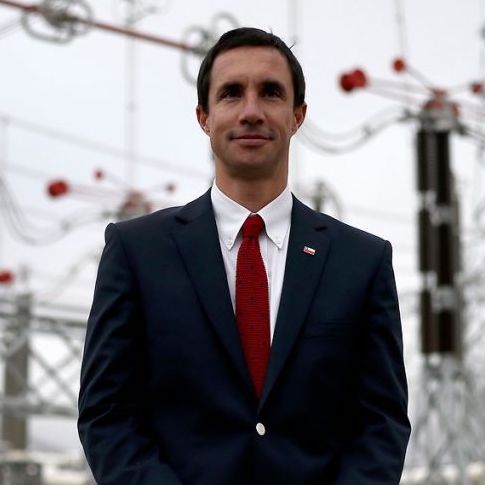 Minister of Energy, Government of Chile
Minister of Energy, Government of ChileJuan Carlos Jobet Minister of Energy, Government of Chile
Juan Carlos Jobet holds a degree in Business Management from the Universidad Católica de Chile, as well as Master’s Degrees in Business Administration and in Public Administration from Harvard University.
His professional career began at the corporate finance consulting firm Asset Chile from 2000 to 2010.
In 2010, he joined the first governmental administration of President Sebastián Piñera as Chief of Staff of the Minister of the Interior, Rodrigo Hinzpeter. There, he played a leading role in the Emergency Committee, created to face the country’s reconstruction after the earthquake of February 2010.
On July 29th, 2011, he assumed the position of Undersecretary of Housing, where he continued the work of reconstruction, enhancing the Ministry’s role in urban development.
Subsequently, on July 24th, 2013, he became Minister of Labor and Social Welfare. During this appointment, he focused on extending access to childcare to all working women, a mission that he defined at that time as a project that “levels the playing field for all children”.
After holding various positions in the private sector, in January 2019 he took on the responsibility of managing the Infrastructure Fund, a new state-owned company with the objective of developing new public infrastructure such as highways, trains and ports.
He now takes on an even greater challenge: to head the Ministry of Energy, whose mission is to lead Chile towards a new, greener, decarbonized energy matrix, with an emphasis on non-conventional renewable energy and the objective of setting Chile on the path to become neutral in carbon emissions.
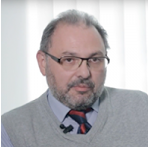 Staff Professor, Department of Power Engineering, ETSII-UPM
Staff Professor, Department of Power Engineering, ETSII-UPMAlberto Abánades Staff Professor, Department of Power Engineering, ETSII-UPM
Industrial Engineering Ph.D specialised in Energy Technologies by the ETSII of the Universidad Politécnica de Madrid, staff professor of the Department of Power Engineering of the ETSII-UPM. He collaborates with Nobel Laurate Prof. Carlo Rubbia since 1996 when at CERN he was involved in the TARC experiment regarding the Energy Amplifier project. Later, he was project leader at the LAESA company, established in Zaragoza (Spain) for the development of a proton accelerator laboratory and an Energy Amplifier prototype (1998-2001).
Senior fellow of the Institute of Advanced Sustainability Studies, in Potsdam (Germany) from 2011 to 2013 and currently is scientific advisor in the Spanish Research Agency (AEI) since the end of 2015. Academic coordinator of the Energy Engineering Master of the UPM since January 2017. He is Vice-dean of postgraduate and doctoral studies at the Industrial Engineering School of the UPM since April 2018.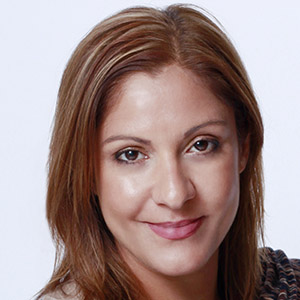 Chief of Climate Change, Inter-American Development Bank
Chief of Climate Change, Inter-American Development BankAmal-Lee Amin Chief of Climate Change, Inter-American Development Bank
Amal-Lee is a passionate advocate for sustainable development and dedicated to delivering high impact outcomes in support of the low carbon and climate resilient transition. Recognized by Apolitico as one of the top 100 influencers on climate policy, her career spans the UK Government; multilateral development bank; academic and think-tank contexts. As Chief of Climate Change at the Inter-American Development Bank, Amal-Lee leads a talented 60 person team to support LAC with implementation of the Paris Agreement. Her PhD on policies for increasing investment in renewable energy in developing countries has been central to her work.
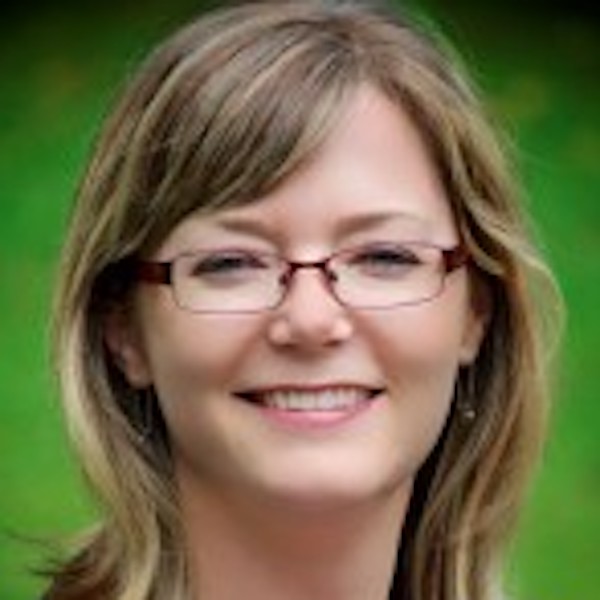 Head of International Programs, ClimateWorks Australia
Head of International Programs, ClimateWorks AustraliaMeg Argyriou Head of International Programs, ClimateWorks Australia
Meg leads ClimateWorks’ international work programs, with a focus on Southeast Asia and the Pacific Islands. She designed and leads the organisation’s new agenda-setting program, ‘Pathways to Prosperity: Achieving lowest emissions development and the SDGs’ and has published a number of articles and an issues paper focused on the nexus between climate mitigation and sustainable development.
Previously, Meg led ClimateWorks’ Engagement Team, where she provided strategic oversight for ClimateWorks’ stakeholder management, and led the organisation’s communication strategies to advance progress on climate change and catalyse tangible action by business and government. She also oversaw the philanthropic fundraising program, and led the development and launch of ‘Generation Yes’, an engagement and education program focused on galvanising public support for strong climate action.
Meg also led the development of a number of sub-national low carbon growth plans (Greater Geelong, Gippsland, Macquarie Park and City of Melbourne), and co-authored the reports, ‘Improving Australia’s Light Vehicle Fuel Efficiency’, ‘How to Make the Most of Demand Management’ and the ‘Impact of the Carbon Price Package’.
Prior to joining ClimateWorks, Meg worked in government, managing funding programs focused on capacity building. She has also worked for the International Energy Agency, supporting working parties focused on energy efficiency, renewables and clean technology transfer.
Meg holds an MBA with a specialisation in Environmental Sustainability from Deakin University and a Bachelor of Film and Television from the University of Melbourne. She is also an alumni of the Centre for Sustainability Leadership.
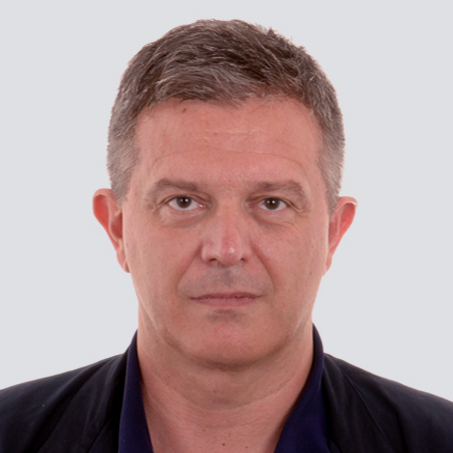 Associate Professor, Politecnico di Milano
Associate Professor, Politecnico di MilanoNiccolò Aste Associate Professor, Politecnico di Milano
Starting from 1995, he has been actively engaged in the research activities related to energy efficiency of the built environment and to the exploitation of renewable energy sources in building and urban sector.
Graduated cum laude in Architecture from Politecnico di Milano in 1994, in 2000 obtained a Doctorate in Technological Innovation and Architectural Design at the same university.Since 2002 he has been working at Politecnico di Milano first as a Researcher, then as an Associate Professor, then as a Full Professor. Starting from 2017 he is also the Rector’s delegate for international relationship with Africa.
He has participated, often in the role of coordinator, in several national and international research programmes, mainly on the issues of sustainable architecture, energy efficiency and renewable energy sources.
Among major clients of his research consultancy are: United Nations (UN-Habitat), Italian Ministry of the Environment, Lombardy Region, FIAT, GSE, Whirlpool, ENI, ENEL.
He is the author of several scientific handbooks and more than 100 publications in various international journals and conferences.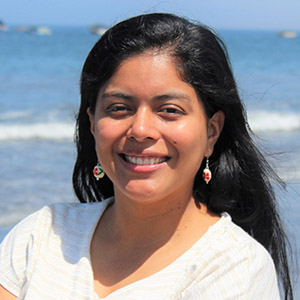 Deputy Secretary of Environmental Planning and Information, City of Lima, Peru
Deputy Secretary of Environmental Planning and Information, City of Lima, PeruPamela Lucia Bravo Ortiz Deputy Secretary of Environmental Planning and Information, City of Lima, Peru
Pamela Bravo, environmental engineer from the Federico Villarreal National University, with a master’s degree in Senior Management and specialization in Environmental Impact Assessment and Environmental Regulation. With experience in the public and private sector. Currently, he works as Deputy Manager of Environmental Planning and Information and also as Deputy Manager of Natural Resources of the Metropolitan Municipality of Lima, where he leads the issues related to planning, governance and formulation of environmental projects, ecosystem protection and climate change.
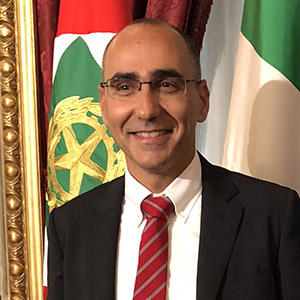 Director, FEEM
Director, FEEMPaolo Carnevale Director, FEEM
Paolo Carnevale was appointed FEEM Executive Director on July 3rd 2018.
His career with Eni started at the Research&Development Division of Tecnomare, Venice in 1998. After an academic experience at the Faculty of Engineering of the University of Bologna (“hydrocarbons and subsoil liquids” sector), Paolo Carnevale returned to Tecnomare to work on the Kashagan project.
He moved to the Eni Exploration&Production Division in Basilicata, Italy in 2010, where he was Health, Security, Environment & Permitting Manager in charge of relations with the stakeholders.
He had two different assignments in Nigeria from 2012 to 2016: General Manager of the Upstream Business at Abuja and General Manager, District Management of the Nigerian Agip Oil Company at Port Harcourt.
He returned to Italy in 2016 as Vice President of Eni Upstream, Distretto Centro Settentrionale of Ravenna.
He then moved to England in 2017 as Senior Vice President, Integrated Gas Project Management to re-organize and enhance the integration of Eni’s upstream and midstream services.
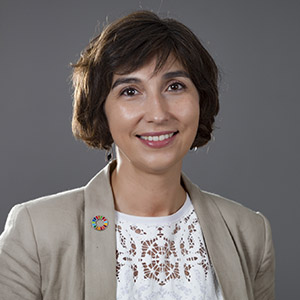 Associate Director for the SDGs, Industriales UPM
Associate Director for the SDGs, Industriales UPMRuth Carrasco-Gallego Associate Director for the SDGs, Industriales UPM
Dr. Carrasco-Gallego is Associate to the Dean for the Sustainable Development Goals (SDGs) at ETSI Industriales, Technical University of Madrid (UPM). As part of the Dean team, her role is to foster the 2030 Agenda within the center and beyond. She is an associate professor in sustainable supply chains at UPM with a research focus and expertise on circular economy, environmental and social metrics in value ecosystems and humanitarian logistics. Her research agenda also includes aspects related to gender in science and technology.
She graduated as an Industrial Engineer in 2004 from UPM and Ecole des Ponts-Paristech and worked as a supply chain engineer at L’Oreal and Air Liquide. She joined the Department of Industrial Engineering, Management and Statistics of UPM in 2007 as a PhD candidate and lecturer in the production and logistics area. Her doctoral dissertation on reuse and closed-loop supply chains received several awards, such as the CEL 2011 University award to the best PhD dissertation on logistics in Spain, the PhD thesis award 2011 of the Board of Industrial Engineers of Madrid (COIIM) and the extraordinary PhD prize from UPM. She has published extensively in her areas of expertise and has participated or led several research projects for both public and private institutions, including the development of the nascent stages of Alianza Shire. She has been a visiting scholar at the Erasmus University of Rotterdam (2009), the INSEAD Social Innovation Centre (2011), the University of Wakayama in Japan (2013) and the University of Neuchâtel in Switzerland (2015).
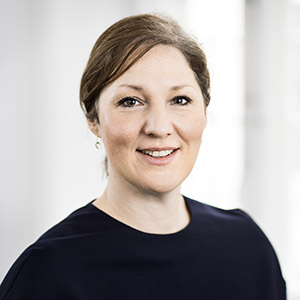 Managing Director and Head of Projects & Programmes, of the Global Maritime Forum
Managing Director and Head of Projects & Programmes, of the Global Maritime ForumJohannah Christensen Managing Director and Head of Projects & Programmes, of the Global Maritime Forum
Johannah Christensen is Managing Director, Head of Projects & Programmes, of the Global Maritime Forum. The Global Maritime Forum is an is an international not-for-profit organization committed to shaping the future of global seaborne trade to increase sustainable long-term economic development and human wellbeing. It brings together a broad spectrum of leaders from across the industry to find new solutions to the most important challenges facing the industry today and in the future. Prior to establishing the Global Maritime Forum, Johannah has helped businesses to address global challenges in a variety of different roles at INDEX: Design to Improve Life, at leading Scandinavian think tank Monday Morning, at the World Economic Forum and as an independent advisor.
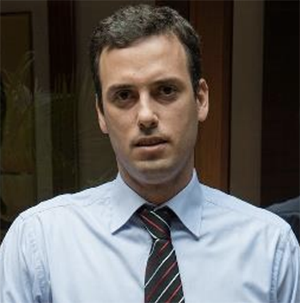 Sustainability Coordinator, Votorantim Cimentos
Sustainability Coordinator, Votorantim CimentosFábio Cirilo Sustainability Coordinator, Votorantim Cimentos
Since October 2015 in Votorantim Cimentos, Fábio is currently sustainability coordinator, with solid experience in sustainability strategy, life cycle assessment and ecoefficiency, he is responsible for developing and implementing business strategies, policies and programs in the areas of climate change, climate risks management, industrial process improvement, sustainable construction and circular economy.
Fábio holds a degree in Mechanical Engineering with São Paulo State University (UNESP) and a post-graduate degree by FIA in business management.
Since 2016, Fábio has been acting as leader of CEBDS climate working group (Brazilian arm of the WBCSD). Fábio has also worked for 6 years in the coordination of BASF Eco-Efficiency team and 2 years as improvement engineer at Dow Chemical. At UNESP he was a researcher of energy alternative sources, carbon capture and environmental policies.
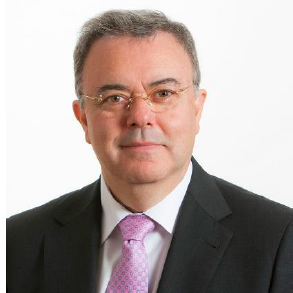 Rector, la Universidad Politécnica de Madrid
Rector, la Universidad Politécnica de MadridGuillermo Cisneros Pérez Rector, la Universidad Politécnica de Madrid
Guillermo Cisneros (Madrid, 1960) es Catedrático de Universidad, Ingeniero de Telecomunicación desde 1983 y Doctor Ingeniero de Telecomunicación cum laude desde 1986, ambos por la Universidad Politécnica de Madrid (UPM).
Comenzó en la UPM como Profesor de Física y posteriormente de Sistemas de Telecomunicación, Sistemas Multimedia, Teledetección y Gráficos por Ordenador.
Trabajó en Telefónica España en las áreas técnicas, de gestión e internacionales en investigación aplicada y comunicaciones móviles. Fue representante español en distintas organizaciones internacionales como el IWP (Interim Working Party) 11/4 del entonces denominado CCIR (ahora llamado ITU-R, International Telecommunication Union - Radio), ETSI-GSM (European Telecommunications Standard Institute - Global System for Mobile Communications) y CEPT-MoU (Memorandum of Understanding) para la implantación del servicio GSM.
También ha venido participando activamente en proyectos europeos con importantes responsabilidades de dirección, en áreas como Networked Electronic Media, Televisión Digital, Servicios Ubicuos Broadcast e Interactivos, Sistemas y Servicios para aplicaciones en Humanidades y Teleeducación, e Internet del Futuro (Future Internet). Ha actuado también como experto en evaluaciones y auditorías técnicas de proyectos de la Comisión Europea así como de proyectos en Programas Nacionales. También fue miembro del Comité de Dirección de la Plataforma Tecnológica Europea NEM (Networked Electronic Media) y Vicepresidente de las Plataformas Tecnológicas Españolas para Networked Electronic Media e Internet del Futuro (Future Internet).
Sus actividades de investigación incluyen la participación en más de veinte Proyectos de Investigación internacionales (principalmente de Programas de la Comisión Europea) y cuarenta Proyectos de Investigación nacionales, siendo Director de Proyecto o Investigador Principal en más de diez Proyectos internacionales y veinte nacionales. Ha publicado más de ciento veinte artículos en revistas y congresos, de los que más de setenta son en Conferencias Internacionales.
Ha sido Director de la Escuela Técnica Superior de Ingenieros de Telecomunicación de la Universidad Politécnica de Madrid, implementando los cambios de adaptación al Espacio Europeo de Enseñanza Superior, y siendo pionero en el proceso de acreditación internacional ABET-EAC (Accreditation Board for Engineering Technology- Engineering Accreditation Committee) como MSc (Master of Science) para el título Ingeniero de Telecomunicación, siendo además el Presidente de la Conferencia Española de Directores de Escuelas de Ingenieros de Telecomunicación. Durante este periodo, representó a ANECA (Agencia Nacional de Evaluación de la Calidad y Acreditación) para un proyecto piloto de Acreditación Internacional de Estudios de Ingeniería de Telecomunicación a nivel europeo.
Posteriormente ocupó el cargo de Director General de la Fundación para la Proyección Internacional de las Universidades Españolas (Universidad.es), cuyo Patronato estaba conformado al más alto nivel por el Ministerio de Educación, Cultura y Deportes (Ministro, Secretario de Estado, Secretario General de Universidades, Director General de Política Universitaria), el Ministerio de Asuntos Exteriores y Cooperación (Secretario de Estado de Cooperación y para Latinoamérica), y el Ministerio de Economía y Competitividad (Secretario de Estado de Investigación e Innovación), además de otros Organismos como el Instituto Cervantes.
Desde abril de 2016 es el Rector de la Universidad Politécnica de Madrid.
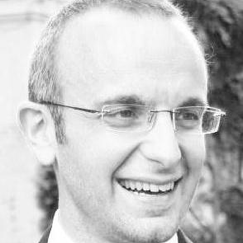 Senior Researcher, Politecnico di Milano University
Senior Researcher, Politecnico di Milano UniversityClaudio Del Pero Senior Researcher, Politecnico di Milano University
Claudio Del Pero is a senior researcher at the Politecnico di Milano University (Dept. of Architecture, Built Environment and Construction Engineering).
He is actively involved in research and advisory activities related to energy efficiency in the building sector and to the exploitation of renewable energy sources, with particular reference to the topics of solar technologies and distributed energy generation.
Over the years he has been involved in various National and International research projects related to the exploitation of renewable energy sources, energy efficiency and energy management at building and district level.Since 2014 he also participates in different research and cooperation activities on the above-mentioned topics in African Countries.
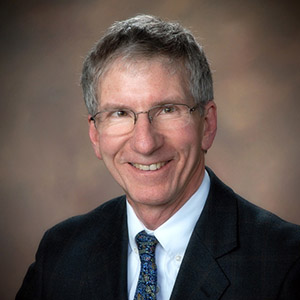 Commonwealth Professor of Environmental Law and Sustainability, Widener University Commonwealth Law School
Commonwealth Professor of Environmental Law and Sustainability, Widener University Commonwealth Law SchoolJohn Dernbach Commonwealth Professor of Environmental Law and Sustainability, Widener University Commonwealth Law School
John C. Dernbach is Commonwealth Professor of Environmental Law and Sustainability at Widener University Commonwealth Law School in Harrisburg, Pennsylvania and Director of that school’s Environmental Law and Sustainability Center. Professor Dernbach has written widely on sustainable development, climate change, and environmental law. He and Professor Michael Gerrard are the co-editors Legal Pathways to Deep Decarbonization in the United States (ELI Press 2019), a comprehensive analysis and description of more than 1,000 legal tools for reducing greenhouse gas emissions by at least 80% by 2050. He is also the principal author or editor of three books assessing U.S. progress toward sustainability and making recommendations (Acting as if Tomorrow Matters: Accelerating the Transition to Sustainability (2012), Agenda for a Sustainable America (2009), and Stumbling Toward Sustainability (2002).
Professor Dernbach coauthored a successful amicus brief to the U.S. Supreme Court on behalf of 18 prominent climate scientists in Massachusetts v. Environmental Protection Agency. His scholarship and advocacy helped persuade the Pennsylvania Supreme Court in landmark decisions in 2013 and 2017 to reinvigorate the Environmental Rights Amendment to the state constitution. Prior to joining the Widener faculty, he drafted four major waste and mining laws at the Department of Environmental Resources (now the Department of Environmental Protection).
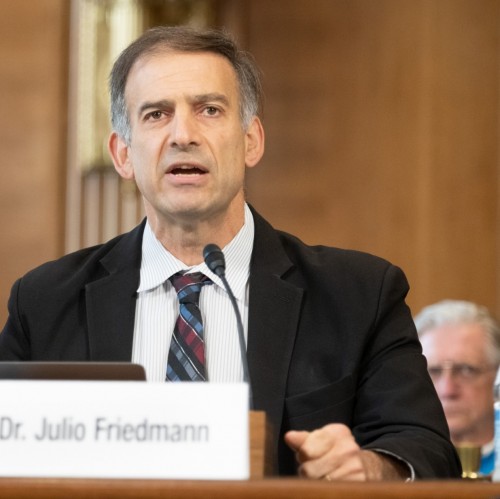 Senior Research Scholar, Columbia University
Senior Research Scholar, Columbia UniversityJulio Friedmann Senior Research Scholar, Columbia University
Dr. Julio Friedmann is a Senior Research Scholar at the Center for Global Clean Energy Policy at Columbia University, where he leads a new initiative in carbon management. He is also CEO of Carbon Wrangler, LLC. Recently, he served as Principal Deputy Assistant Secretary for the Office of Fossil Energy at the Department of Energy, where he held responsibility for DOE’s R&D program in advanced fossil energy systems, carbon capture, and storage (CCS), CO2 utilization, and clean coal deployment. His expertise includes Large-Scale Carbon Management, CO2 removal, CO2 recycling, Oil and Gas systems, international engagements in clean energy, and inter-agency engagements within the US government. He has also held positions at Lawrence Livermore National Laboratory, including Senior Advisor for Energy Innovation and Chief Energy Technologist, is a Distinguished Associate at the Energy Futures Initiative, and serves as a special advisor to Total SA and the Global CCS Institute. He was recently named as a Senior Fellow to the Breakthrough Institute and a Stanford Precourt Scholar.
Dr. Friedmann is one of the most widely known and authoritative experts in the U.S. on carbon removal (CO2 drawdown from the air and oceans), CO2 conversion and use (carbon-to-value), and carbon capture and sequestration. Dr. Friedmann received his Bachelor of Science and Master of Science degrees from the Massachusetts Institute of Technology (MIT), followed by a Ph.D. in Geology at the University of Southern California. He worked for five years as a senior research scientist at ExxonMobil, then as a research scientist at the University of Maryland.
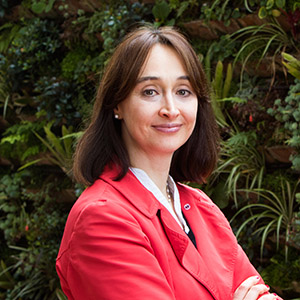 CEO, World Green Building Council
CEO, World Green Building CouncilCristina Gamboa CEO, World Green Building Council
Cristina Gamboa, CEO of the World Green Building Council is a passionate advocate for green buildings and cities as one of the most effective solutions to climate change and as a means to deliver on social justice and other environmental goals, such as stopping biodiversity loss.
Prior to joining WorldGBC, she was CEO of Colombia Green Building Council and also has expertise in the fields of economic research, journalism and international affairs. Thanks to her active, committed and participatory leadership, and thorough knowledge of sustainable development, the Colombia GBC met significant milestones that enabled sustainability in construction to become mainstream in her home country.
Her degrees include a BA in Economics from University of Los Andes (Bogotá, Colombia) and a MA in International Relations and Economics from Johns Hopkins University, School of Advanced International Studies (SAIS, Washington DC, U.S.A.).
Cristina is based in London, UK.
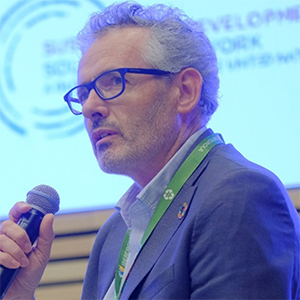 Professor of Agricultural and Natural Resource Economics and Vice-Rector of Quality and Efficiency at the Universidad Politécnica de Madrid (UPM)
Professor of Agricultural and Natural Resource Economics and Vice-Rector of Quality and Efficiency at the Universidad Politécnica de Madrid (UPM)Alberto Garrido Professor of Agricultural and Natural Resource Economics and Vice-Rector of Quality and Efficiency at the Universidad Politécnica de Madrid (UPM)
Professor of Agricultural and Natural Resource Economics and Vice-Rector of Quality and Efficiency at the Universidad Politécnica de Madrid (UPM). Has a Bachelor Degree and (with MSc recognition) in Agricultural Engineering (1989); a Masters in Agricultural and Natural Resource Economics from the University of California, Davis (1992) and a Doctoral Degree in Agricultural Economics from the UPM (1996).
His 25 years of research experience include projects, consultancy documents, supervised theses and publications about: Risk management in agriculture and agricultural insurance/ Water resources economics and policy/ Drought analysis and policies/ Climate change and agricultural risks/ Poverty, both at micro- and macro-economic level/ Agricultural policy / Food and agricultural markets volatility / Agricultural and food consumption sustainability / Farming systems’ resilience / Food consumption, diets and food security, both at households’ and national scales.
He has been the principal investigator of more than 50 research projects, including several international competitive ones for IFAD, European Commission, PepsiCo, European Parliament, FAO, World Bank, OECD, EASAC and various other public and private institutions, having acquired more than €3.5 mill. in research grants. Has worked professionally in Chile, Colombia, Ecuador
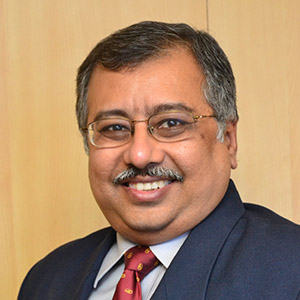 CSO, Mahindra Group
CSO, Mahindra GroupAnirban Ghosh CSO, Mahindra Group
Anirban has worked with the USD 20.7 billion Mahindra Group since 1999 where he is currently the Group’s Chief Sustainability Officer.
During his work Anirban has developed an award winning sustainability framework, enabled being the first in the world to commit to doubling energy efficiency, the first in the country to join the World Bank’s Carbon Pricing Leadership Consortium, commit to a carbon price and also commit to Science Based Targets. He has helped harness more water than is consumed in the Mahindra Group and is currently striving to make Mahindra a zero waste to landfill organization.
Anirban has enabled Mahindra World City to become a food waste free city, a model that is being replicated in other parts of India. He has, in partnership with the World Bank, helped create the Sustainable Housing Leadership Coalition to enable the spread of green buildings in India.
Anirban has spread sustainability in communities by leading the implementation of a national award winning watershed development project that tripled per capita income for 20,000 Indians. He has helped create an EHS+ centre, in partnership with the Institute for Sustainable Communities, to spread sustainability in the supply chain.
Anirban writes a syndicated column for CNBC India and has written opinion pieces for publications like Financial Times, Huffington Post, Green Biz and Eco-business. He has been an invited speaker at UNFCCC conferences, the Global Climate Action Summit, The Climate Week, GRI Global Conference among others and has been recognized as a Distinguished Sustainability Officer.
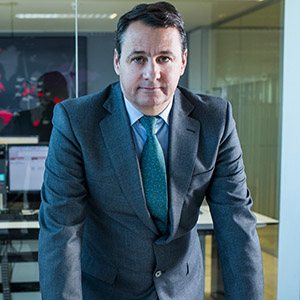 Global Head of Energy Management, Acciona
Global Head of Energy Management, AccionaSantiago Gomez Ramos Global Head of Energy Management, Acciona
Santiago Gomez Ramos is Global Head of Energy Management at Acciona, where he manages the renewable energy sales of the Acciona Group facilities (10,000 MW of installed power in 16 countries on 5 continents), which means a volume of 24 TWh / year.
He is responsible for Acciona Green Energy Developments, the Group’s energy retailer that sells energy to final consumers in Spain and Portugal (approx. 6,5 TWh and € 550 Million).
He is member of the Steering Committee of energy Division of Acciona.
He is also president of the wind section of APPA, the Spanish Renewable Energy Association and represents Acciona in other sector associations such as WindEurope (European wind energy association), and AEE (Spanish wind energy association).
Santiago began his professional career in IDAE (Spanish Institute for Energy Saving and Efficiency) where he worked for two years as a project.
Santiago Gomez Ramos is a Mining Engineer with Energy Speciality by the Higher School of Mining Engineers in Madrid, PDG by IESE Business School and PDD by Instituto de Empresa.
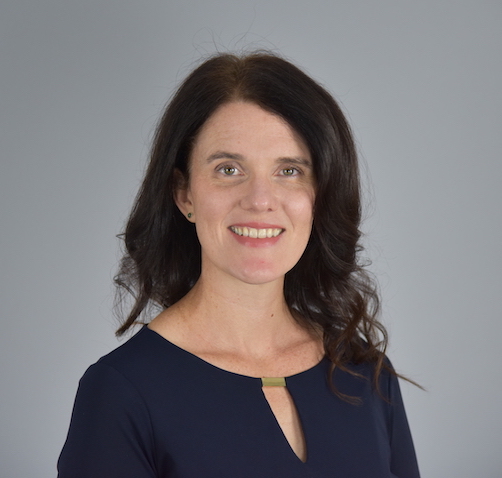 Program Manager, Sustainable Supply Chains Initiative, MIT
Program Manager, Sustainable Supply Chains Initiative, MITSuzanne Greene Program Manager, Sustainable Supply Chains Initiative, MIT
Suzanne Greene manages the Sustainable Supply Chains initiative at the Massachusetts Institute of Technology’s Center for Transportation & Logistics. She collaborates with industry and stakeholders to develop new methods to calculate, report, and offset carbon emissions, with particular expertise in the metals and minerals, freight transportation, and information technology sectors. Suzanne is the author of the Global Logistics Emissions Council Framework and the Black Carbon Methodology for the Logistics Sector, and served as Technical Partner on the Science-Based Target initiative for Transport.
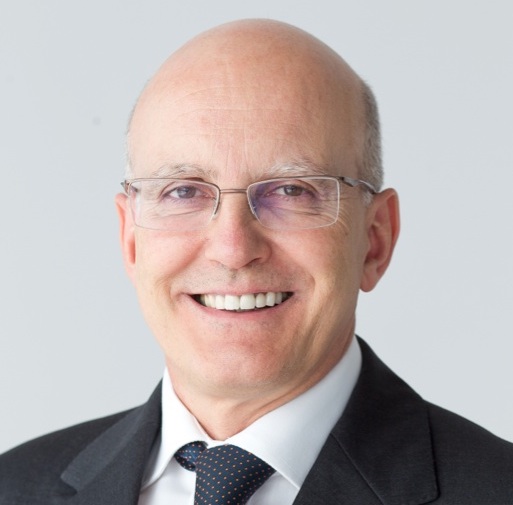 Coordinator of the Future Energy Research Program, Fondazione Eni Enrico Mattei (FEEM)
Coordinator of the Future Energy Research Program, Fondazione Eni Enrico Mattei (FEEM)Manfred Hafner Coordinator of the Future Energy Research Program, Fondazione Eni Enrico Mattei (FEEM)
Manfred Hafner is Professor of international energy studies (geopolitics and economics of energy) and teaches at the Johns Hopkins University School of Advanced International Studies (SAIS-Europe) and at Sciences Po Paris School of International Affairs (PSIA). Dr. Hafner is Coordinator of the Future Energy Research Program at the Fondazione Eni Enrico Mattei (FEEM). He has over his more than 30 year professional career extensively consulted on energy and climate issues for governments, international organizations (EC, WB, IEA, IRENA, G7/8, G20…) and industry, and has coordinated several major interdisciplinary research projects for the European Commission. Dr. Hafner holds master degrees in energy engineering from the Technische Universität München (Germany), in energy economics and business from the IFP-School of IFPEN (France) and the Université Paris2/Panthéon Assas (France) and in energy management and policy the University of Pennsylvania (USA). He also holds a PhD from Mines ParisTech (Ecole des Mines de Paris).
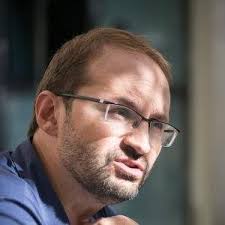 Director of Energy and Environment, Prat de Llobregat
Director of Energy and Environment, Prat de LlobregatJoan Herrera Director of Energy and Environment, Prat de Llobregat
Joan Herrera, lawyer, environmental and energy law specialist.
He was a deputy in the Congress of Deputies and the Pralament de Catalunya by ICV (Green Party) from 2004 to 2010 and from 2010 to 2015.
He has been General Director of IDAE (Institute for Diversification and Energetic Saving of the Government of Spain).
He is currently Director of Environment and Energy of the City Council of Prat de Llobregat, city of the Metropolitan Area of Barcelona, where the Barcelona Airport and the Port of Barcelona are located.
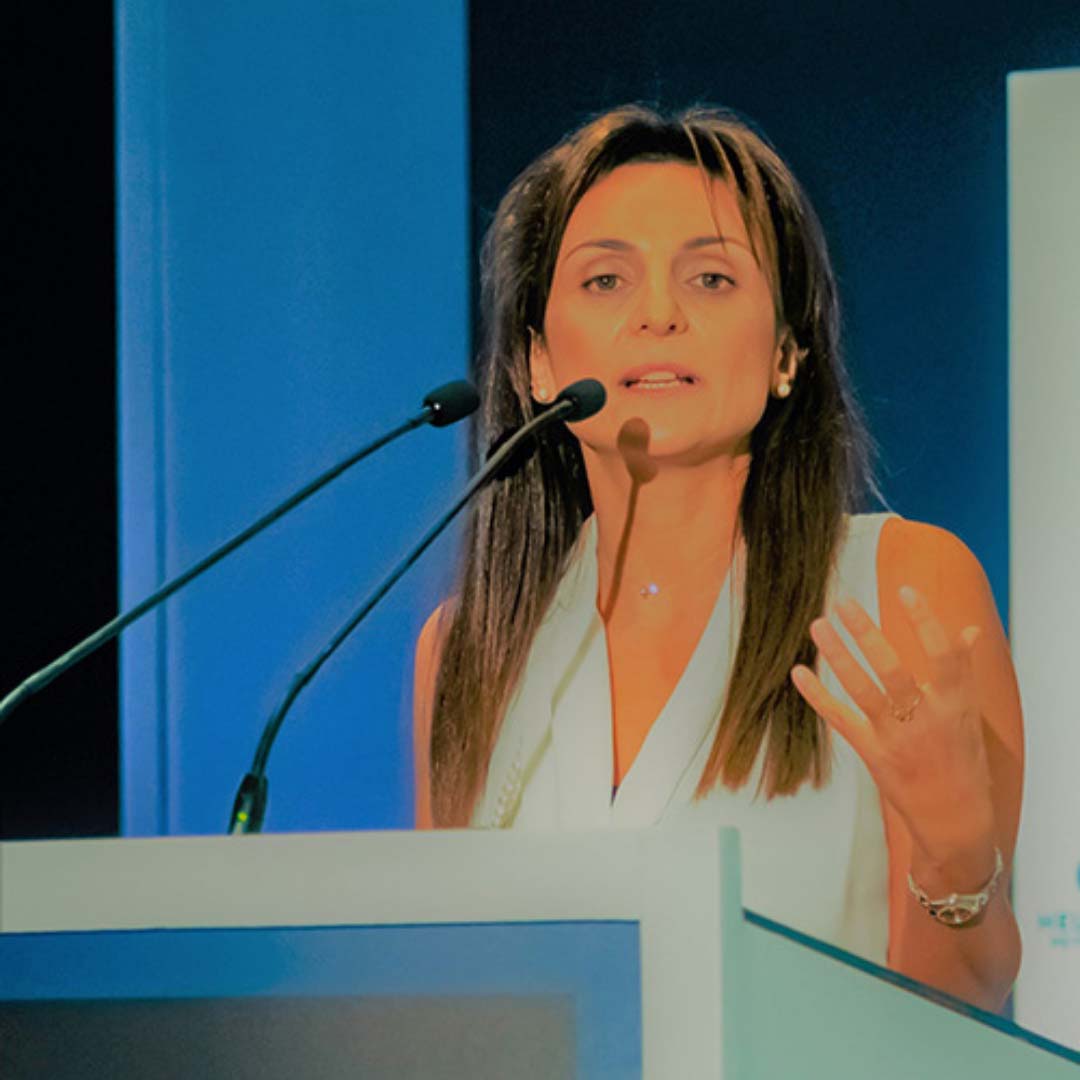 Professor, Athens University of Economics and Business; President Elect European Association of Environmental and Resource Economists
Professor, Athens University of Economics and Business; President Elect European Association of Environmental and Resource EconomistsPhoebe Koundouri Professor, Athens University of Economics and Business; President Elect European Association of Environmental and Resource Economists
Professor Dr. Phoebe Koundouri holds a PhD (2000) and MPhil (1995) in Economics from the University of Cambridge (UK). She is a Professor of Economics and Econometrics (with emphasis on Sustainability, Natural Resources, Energy) at the School of Economics, Athens University of Economics and Business (Greece). She is listed in the 1% of most-cited women economists in the world and she is the elected President of the European Association of Environmental and Natural Resource Economists (https://www.eaere.org/) the most prestigious scientific association in the field, with more than 1200 institutional members.
Prof. Phoebe Koundouri is also the Founder and Scientific Director of the Research Laboratory: ReSEES: Research on Socio-Economic and Environmental Sustainability (www.dept.aueb.gr/en/ReSEES) at the Athens University of Economics and Business and an affiliated Professor at the ATHENA Research and Innovation Center, (Greece) where she directs EIT Climate KIC Greece (www.climate-kic.org; www.climate- kic.org/countries/greece/). She is also the co-chair of the United Nations Sustainable Development Network – Greece (unsdsn.gr; unsdsn.org), chair of the Scientific Advisory Board of ICRE8 International Research Center and chair of the scientific advisory board of the European Forest Institute (www.efi.int).
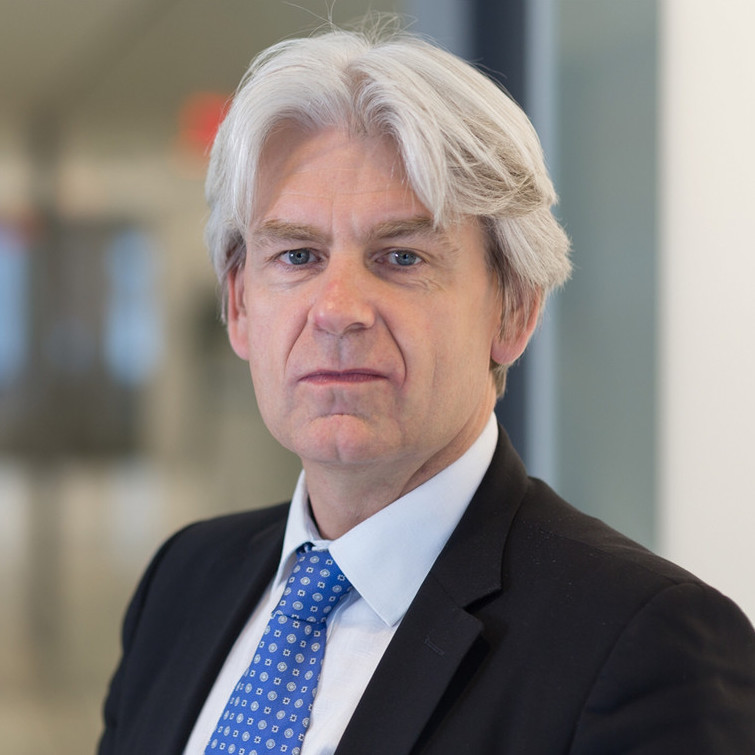 Global Head of Sustainability Research, BNP Paribas Asset Management
Global Head of Sustainability Research, BNP Paribas Asset ManagementMark Lewis Global Head of Sustainability Research, BNP Paribas Asset Management
MARK LEWIS is Global Head of Sustainability Research at BNP Paribas Asset Management, having joined in January 2019. Previously, he was Managing Director and Head of Research at the Carbon Tracker Initiative (April-December 2018), Managing Director and Head of European Utilities Research at Barclays (2015-18), Chief Energy Economist at Kepler Cheuvreux (2014-15), and Managing Director and Global Head of Energy Research at Deutsche Bank (2005-13). He has also been a member of the Financial Stability Board’s Task Force on Climate-related Financial Disclosures since May 2016.
Mark is a UK and French Citizen and holds a BA (First-Class Hons) in Modern Languages and Economics from Sheffield University, an MPhil from Cambridge University, and an MA from London University.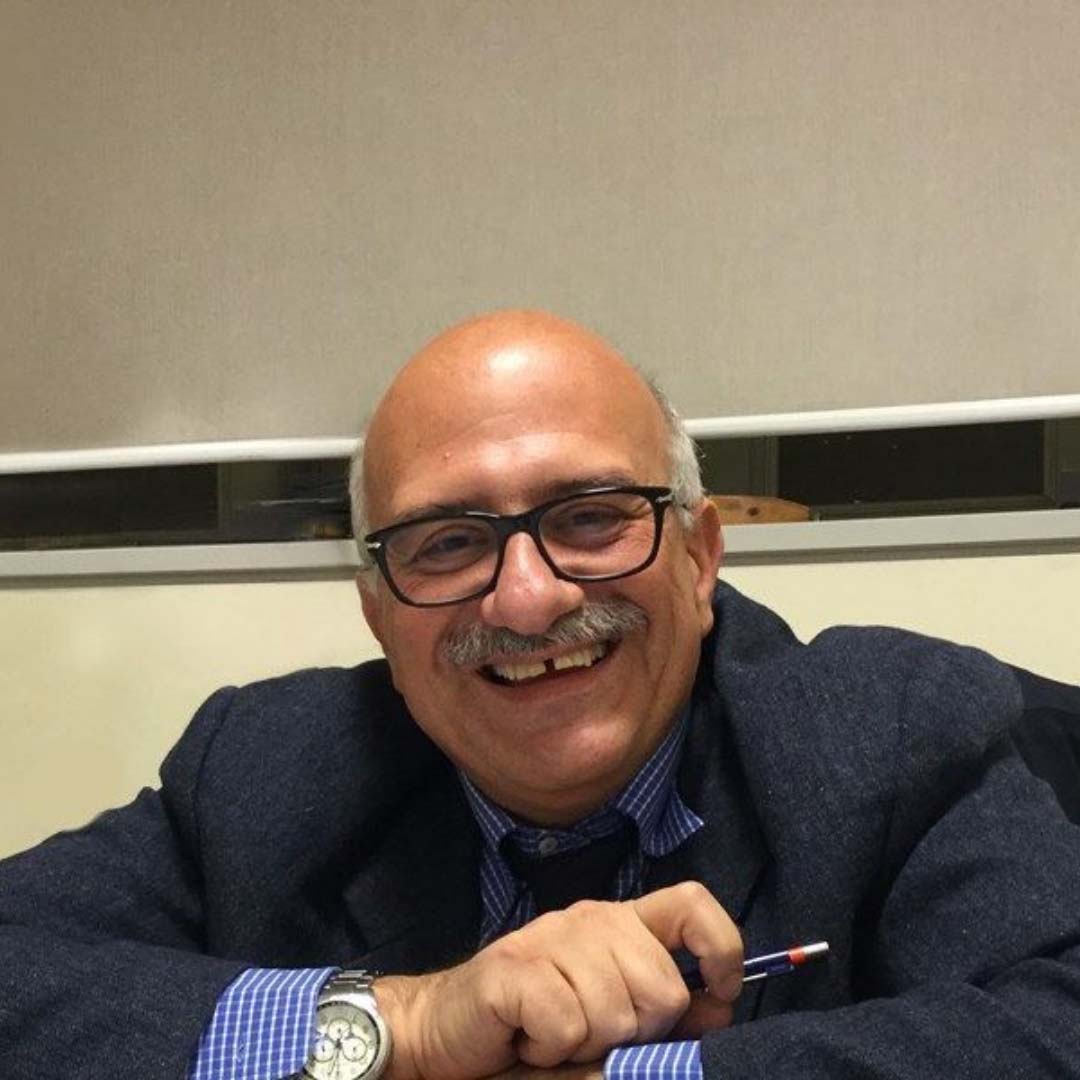 Head of Chemical Engineering Department, Politecnico di Milano
Head of Chemical Engineering Department, Politecnico di MilanoMaurizio Masi Head of Chemical Engineering Department, Politecnico di Milano
Maurizio Masi (born in 1960) is full professor in Applied Physical Chemistry at the Department of Chimica, Materiali e Ingegneria Chimica “Giulio Natta” of Politecnico di Milano. His activity is
centered on reaction kinetics and chemical reaction engineering, on the study of production processes for advanced inorganic materials for microelectronics and for photovoltaic applications and generally on the simulation of the chemical and phisico-chemical processes involved in materials manufacturing and in chemical process engineering. Since 2001, his research moved also towards biomedical engineering, in particular on cells and tissue growth in scaffold supporting media and on biopolymers for controlled drug delivery. All of these researches have been performed in cooperation with primary industrial groups as well with small and medium enterprises,
whose number so far exceeds 50. In 1992 he was Visiting Scientist at Massachusetts Insitute of Technolgy. Presently, he is Head of the Department of Chimica, Materiali e Ingegneria Chimica “Giulio Natta” of Politecnico di Milano. From 2013 to 2018 he was appointed as scientific director of Centro Europeo di Nanomedicina. He was serving as Dean of the School of Industrial Engineering Processes of Politecnico di Milano during the years 2010-2012. He is graduated MSc (cum laude) in Chemical Engineering and PhD in Electrochemical Engineering. Author of more than 150 scientific papers in these areas published on internationally peer reviewed journals, 3 books (“Esercitazioni di termodinamica dell’ingegneria chimica” and “Termodinamica Chimica Applicata”, published by Edizioni Esculapio, authored with R. Rota, “Silicon Epitaxy”, published by Academic Press, edited with D. Crippa and D.L. Rode) and holds 8 international patents.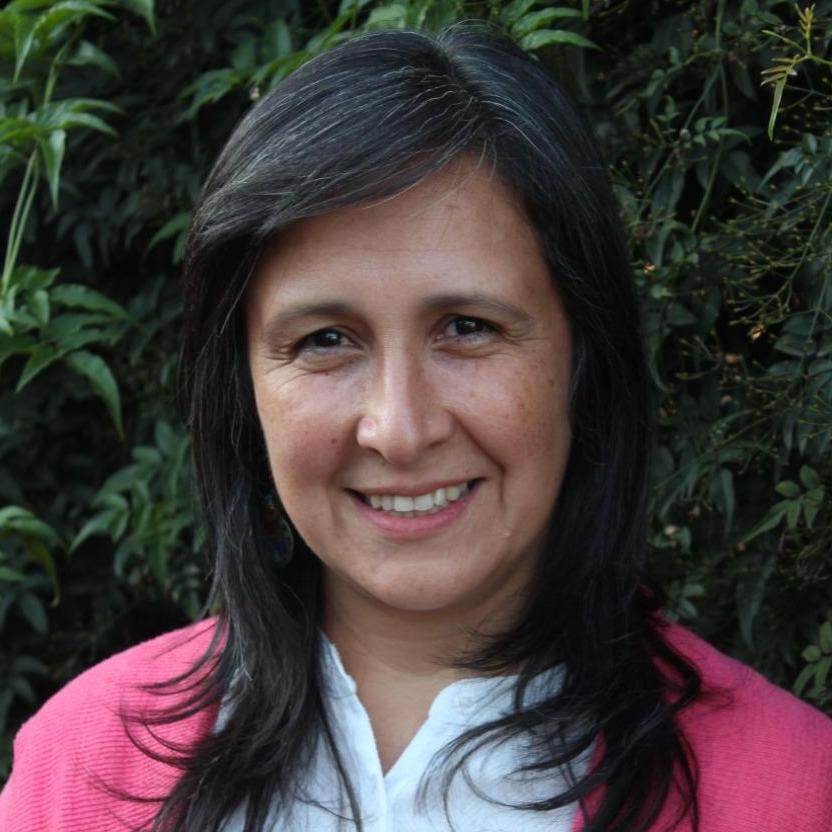 Directora General de Innovación y Calidad Ambiental de la Municipalidad de Rosario, Santa Fe, Argentina
Directora General de Innovación y Calidad Ambiental de la Municipalidad de Rosario, Santa Fe, ArgentinaDaniela Mastrángelo Directora General de Innovación y Calidad Ambiental de la Municipalidad de Rosario, Santa Fe, Argentina
Desde 2004 se ha desempeñado en la gestión pública local ambiental en los siguientes roles: Directora de Control Ambiental, Subsecretaria de Ambiente, Coordinadora Técnica de Planificación Ambiental y Directora General de Innovación y Calidad Ambiental, en la Municipalidad de Rosario, Argentina.
Ha co-coordinado la elaboración participativa del Plan Ambiental Rosario y del Plan Local de Acción Climática.Es representante técnica de la Municipalidad de Rosario en ICLEI (Gobiernos Locales por la Sustentabilidad) para el Proyecto Ecologistics (Reducción de emisiones en el transporte de cargas), y en el Programa de Cooperación Urbana Internacional (IUC-LA EU) en el intercambio con la ciudad de Génova-Italia.
Se ha capacitado en Desarrollo Sostenible y en estrategias para enfrentar el Cambio Climático en diversos espacios de formación nacionales e internacionales entre los que se destacan su formación en Gestión Urbana para el Desarrollo Urbano Sostenible en Kitakyushu-Japon, y las capacitaciones para gobiernos locales del Global Covenant of Mayors for Climate and Energy durante 2017 y 2019.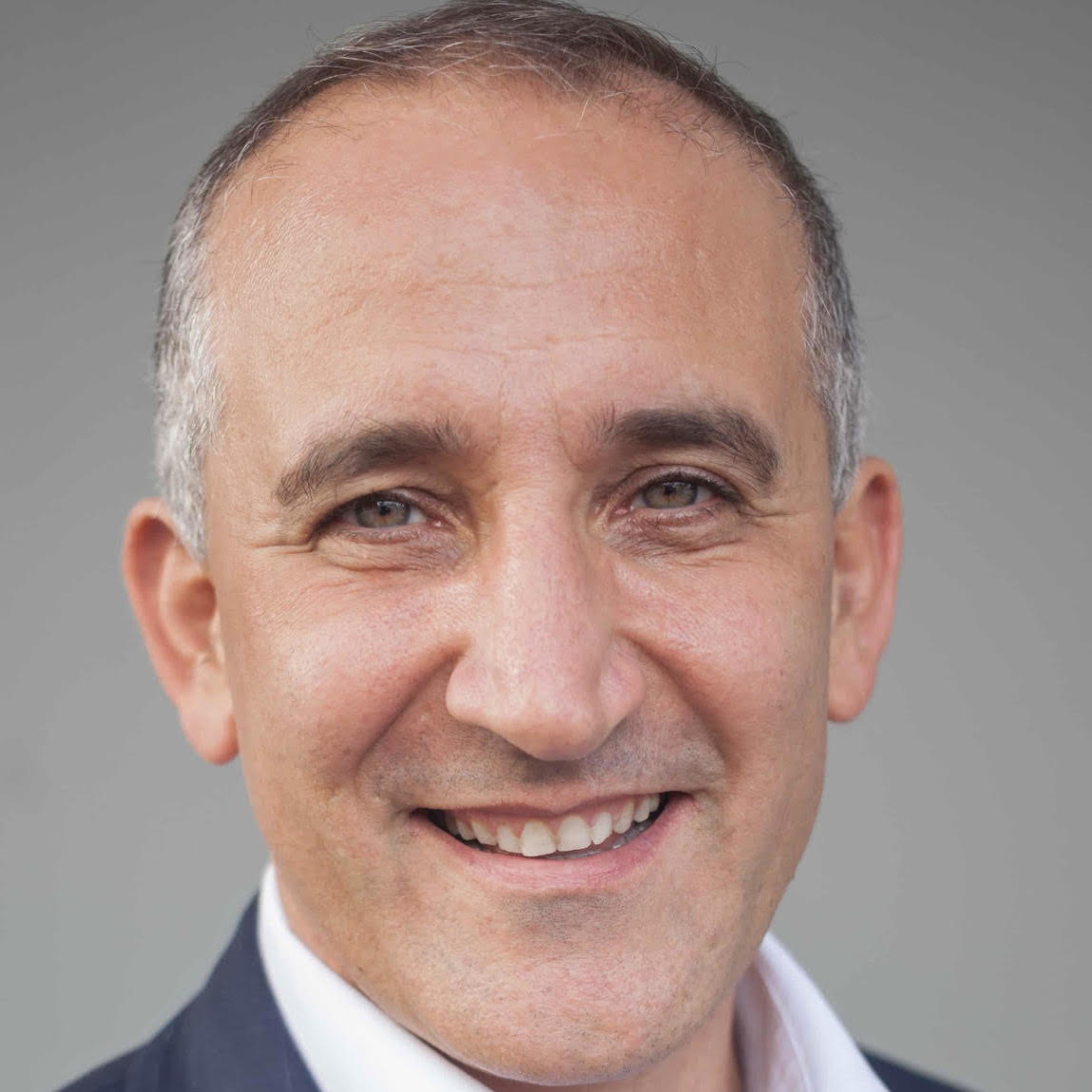 Professor, Politecnico di Milano
Professor, Politecnico di MilanoRenato Mazzoncini Professor, Politecnico di Milano
Since 2017 Professor at Polytechnic of Milan for the course “Mobility- Infrastructures and Services”. Since 2015 member of the Advisorey Board of Polytechnic of Milan.
Freelance and senior advisor for mobility systems management and investments in infrastructures.Graduated in Electro Technical Engineering at the Polytechnic in Milan in 1992.
Involved on public transport systems since 1992 as electric designer in the railway sector for Transystem Spa (AnsaldoTrasporti Group).Manager in Public Transport Companies, both private and municipally from 1998 to 2012.
In 2012 he has been engaged by Ferrovie dello Stato as CEO of the BusItalia, bus company of the Group.
Between 2015 and 2018 the Italian Government, appointed him General Manager and Managing Director of FS, at the age of 47 he was the youngest CEO of the history of FS.
Former Chairman of UIC World Association of Railway Companies 2017-2018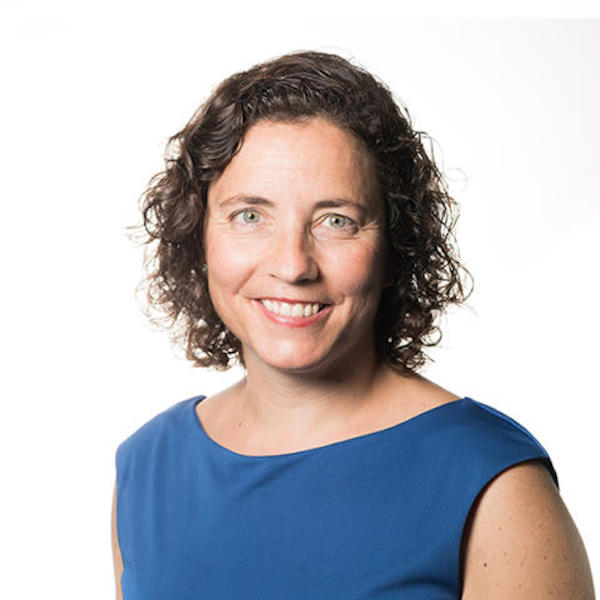 Managing Director, WBCSD
Managing Director, WBCSDMaria Mendiluce Managing Director, WBCSD
Dr. María Mendiluce has over 20 years’ experience in the energy and climate area. Since 2008, María has led the implementation of WBCSD’s Climate and Energy strategy, guiding the work of over 200 member companies to influence the global climate landscape. María managed the development of the Low Carbon Technology Partnerships initiative, one of the flagship projects leading up to the success of COP21. She created WBCSD’s new program on circular economy, and is now developing the new strategy for transport and cities. Prior to joining WBCSD, Maria held different roles at the International Energy Agency (Paris), Iberdrola and the Economic Bureau of the Spanish Prime Minister (Spain). María teaches at the University of Geneva, coaches students and is recognized for her contributions to scientific journals and international conferences. She is married and has three kids.
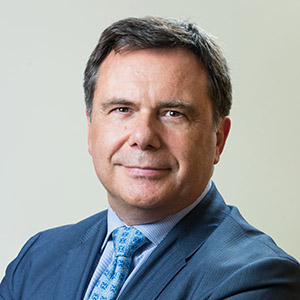 Managing Director, LafargeHolcim Spain
Managing Director, LafargeHolcim SpainIsidoro Miranda Managing Director, LafargeHolcim Spain
Isidoro Miranda was appointed Managing Director of LafargeHolcim Spain in 2015. He began his professional career within Lafarge in 1995 as Senior Vice President of Strategic Studies for the Group. From 2001 to 20011, he served as Group Executive Vice President and Group Executive Member in various positions including President of the Lafarge Gypsum global Division, and Co-President of the Cement Division responsible for Asia. In 2012, he became Managing Director of Lafarge Spain and Ecuador, as well as Deputy Director General of the Group.
He is currently also Vice President of Cembureau, the European Cement Association, of Oficemen, the Spanish Cement Association and President of AFCA, the Andalusia Cement Association.
Isidoro is an Industrial Engineer and PhD in Fracture Mechanics from the University of Navarre (Spain), holds an MBA from INSEAD Business School (France) and has been a Senior Visiting Scholar (Fulbright fellow) at Stanford University (CA, USA). He can be reached at isidoro.miranda@lafargeholcim.es.
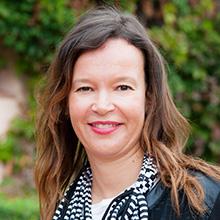 Chair, SDSN Spain
Chair, SDSN SpainLeire Pajin Chair, SDSN Spain
Between 2012 and 2014, Leire Pajín Iraola served as Special Advisor to the Pan American Health Organization (PAHO) and was a policy advisor to the United Nations Development Programme (UNDP) Post-2015 Agenda team. Before taking up these posts, she was Spanish Minister for Health, Social Policy and Equality. Earlier in her career, as Secretary of State for International Cooperation and the Spanish Agency for International Development Cooperation (AECID), she was involved in the development and approval of the Master Plan for Spanish Cooperation (2005-2008) that increased Spanish official development aid threefold to 0.5% of GDP.
As Minister of Health she promoted development in research and innovation in the pharmaceutical industry, saw the approval of the General Health Act, the adaptation of Spanish legislation to the United Nations Convention on the Rights of Persons with Disabilities, as well as the implementation of anti-smoking health measures under the Tobacco Consumption Act, and measures aimed at reducing public spending on prescription drugs. When in charge of Spain’s General Plan for AIDS, she furthered multidisciplinary research on antiretroviral drugs, improved Spain’s AIDS research networks, and strengthened the country’s relationship with the Global Fund to Fight AIDS, Tuberculosis and Malaria, bringing together public and private efforts in the fight against AIDS.
She was responsible for the creation of the Millennium Development Goals Achievement Fund, a joint initiative through which the Spanish Government working with the United Nations System has supported over 130 programmes in 50 countries, directly benefitting 9 million people. Among the goals achieved during her mandate as Secretary of State for Cooperation were the introduction and approval of the Management of Foreign Debt Act, the reform and expansion of the Spanish Agency for International Cooperation (AECID), the creation of the Spanish Cooperation Fund for Water and Sanitation to expand access to drinking water and sanitation services for Latin America’s most vulnerable populations, and the launching of several programmes for the improvement of living conditions for women in Africa and Latin America.
Ms Pajín holds a sociology degree from the University of Alicante and is an Associate Lecturer on two masters programmes in Madrid: Solidarity in Action at the Universidad Carlos III, and International Cooperation at the Universidad Complutense. As Director of the International Development department, she will be responsible for turning the products of ISGlobal’s research and initiatives into real world health interventions in the field.
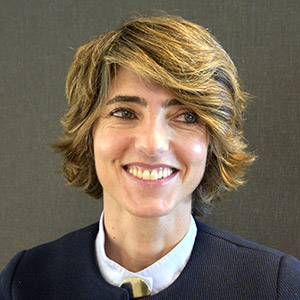 Head of Sustainability and Social Corporate Sustainability, IBERIA
Head of Sustainability and Social Corporate Sustainability, IBERIATeresa Parejo-Navajas Head of Sustainability and Social Corporate Sustainability, IBERIA
Teresa Parejo-Navajas, PhD., serves as the Head of Sustainability and Social Corporate Sustainability with IBERIA since October 2019. Previously, she has developed an extensive academic carrier as Associate Professor of Administrative Law at Carlos III University (Madrid, Spain). She holds an LLM on EU Law and is member of the Pascual Madoz Institute of Spatial Planning, Urbanism and Environment, in Spain, and member of the Board of Governors of ICEL (International Council of Environmental Law). She has published two books, one of them awarded in the year 2004, as well as numerous articles and book chapters on the environmental and spatial planning fields in Spanish and international journals, and was visiting Scholar in various European and US Universities, such as Università di Bologna (Italy), Oxford University (UK), Fordham University (US), Columbia University (US), and PACE University (US). She collaborated with the Sabin Center for Climate Change Law (Columbia University), and the SDSN, New York, during the time she lived in New York.
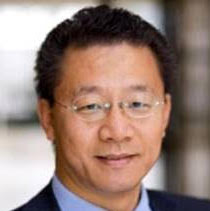 Executive Vice President and Chief Technical Officer, SSAB
Executive Vice President and Chief Technical Officer, SSABMartin Pei Executive Vice President and Chief Technical Officer, SSAB
Martin Pei is Executive Vice President and Chief Technical Officer of SSAB and chairman of Hybrit Development AB (the joint venture company between SSAB, LKAB, Vattenfall). Martin has been employed at SSAB since 2001 and has previously held positions as Head of business area SSAB APAC and Chief Technical Officer of SSAB and General Manager Slab Production at SSAB Special Steel Division.
He is also a board member of the Swedish Jernkontoret, board member of Swedish Research Institute SWERIM and member of the TECO committee within the Worldsteel association.
Martin has a Doctors degree PhD from the Royal Institute of Technology, Stockholm and is a member of the Royal Swedish Academy of Engineering Sciences (IVA).
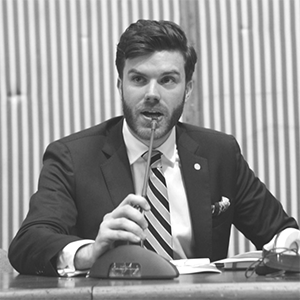 Reporting & Tracking Team Lead, UNFCCC Global Climate Action Portal
Reporting & Tracking Team Lead, UNFCCC Global Climate Action PortalMatthew Phillips Reporting & Tracking Team Lead, UNFCCC Global Climate Action Portal
Matthew Phillips leads the Reporting & Tracking team at UN Climate Change, which includes coordination of the Global Climate Action portal (formerly called NAZCA) – an online tool that showcases ambition towards the implementation of the Paris Agreement. Previously, he conducted strategic communications and stakeholder engagement for UN Climate Change in support of the international climate negotiations. In former years, Matthew worked as an Advisor on Christiana Figueres’ global campaign, Mission 2020: a collaborative challenge which seeks to unite all actors to bend emissions downward by 2020. He also co-founded Beautiful Corporations – a sustainability engagement agency. He holds a degree from the University of St Andrews.
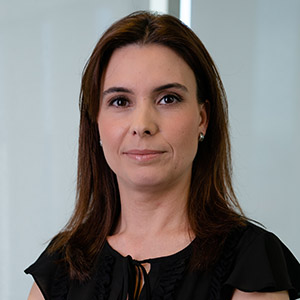 Head of Energy Planning, EDP
Head of Energy Planning, EDPAna Quelhas Head of Energy Planning, EDP
Ana Quelhas is the Director of Energy Planning at EDP, being responsible for supporting the Executive Board of Directors in the decision making processes, contributing with a long term perspective of the energy sector and an integrated vision of the company across businesses (renewables, conventional electricity generation, retail and distribution) and geographies (mainly Europe, US and Brazil).
Before joining EDP, Ana worked in the Directorate-General for Research of the European Commission, in Brussels, supporting the development of the strategic research agenda in the field of energy. Prior to that, she was at the California Independent System Operator providing strategic energy consultancy to the wholesale power market and grid operator in the State of California.
Ana holds a PhD with distinction in Electrical Engineering from Iowa State University, in the United States. She also holds a master’s degree in Economics and a master’s degree in Engineering from the same university, being graduated from the University of Porto with a degree in Electrical Engineering.
.jpg) Director, SDSN
Director, SDSNJeffrey Sachs Director, SDSN
Jeffrey D. Sachs is a world-renowned professor of economics, leader in sustainable development, senior UN advisor, bestselling author, and syndicated columnist whose monthly newspaper columns appear in more than 100 countries. He is the co-recipient of the 2015 Blue Planet Prize, the leading global prize for environmental leadership, and many other international awards and honors. He has twice been named among Time magazine’s 100 most influential world leaders. He was called by the New York Times, “probably the most important economist in the world,” and by Time magazine, “the world’s best known economist.” A survey by The Economist in 2011 ranked Professor Sachs as amongst the world’s three most influential living economists of the first decade of the 21st century.
Professor Sachs serves as the Director of the Center for Sustainable Development at Columbia University. He is University Professor at Columbia University, the university’s highest academic rank. During 2002 to 2016 he served as the Director of the Earth Institute. Sachs is Special Advisor to United Nations Secretary-General António Guterres on the Sustainable Development Goals, and previously advised UN Secretary-General Ban Ki-moon on both the Sustainable Development Goals and Millennium Development Goals and UN Secretary-General Kofi Annan on the Millennium Development Goals. He is a Distinguished Fellow of the International Institute of Applied Systems Analysis in Laxenburg, Austria.
Sachs is currently Director of the UN Sustainable Development Solutions Network under the auspices of UN Secretary-General António Guterres, and a Commissioner of the ITU/UNESCO Broadband Commission for Development. He is Chair and Founder of SDG USA, a non-governmental initiative to promote the Sustainable Development Goal concepts in the United States. Sachs is also co-founder and Chief Strategist of Millennium Promise Alliance, and was director of the Millennium Villages Project (2005-2015).
Sachs has authored and edited numerous books, including three New York Times bestsellers: The End of Poverty (2005), Common Wealth: Economics for a Crowded Planet (2008), and The Price of Civilization (2011). His recent books include: To Move the World: JFK’s Quest for Peace (2013), The Age of Sustainable Development (2015) and Building the New American Economy: Smart, Fair & Sustainable (2017).
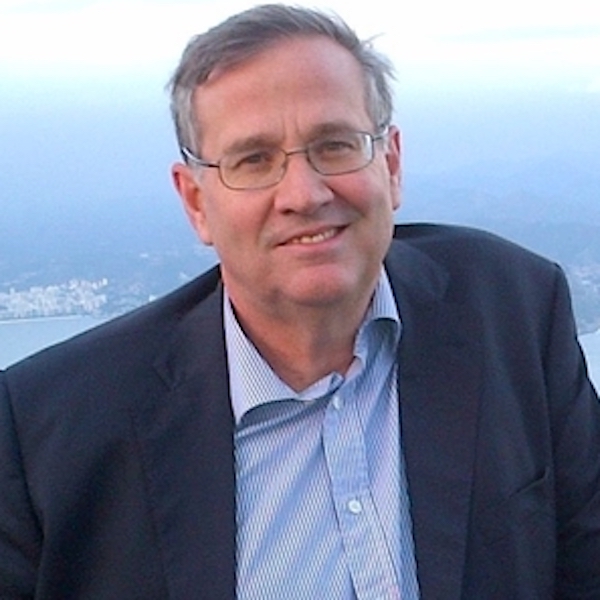 Vice-President of Energy Policies and Climate Change, Iberdrola
Vice-President of Energy Policies and Climate Change, IberdrolaCarlos Sallé Vice-President of Energy Policies and Climate Change, Iberdrola
Mr. Carlos Sallé Alonso serves as Senior Vice President of Policies and Climate Change - Iberdrola at Iberdrola, S.A. and served as its Director of Regulation since joined in September 2001. Mr. Sallé has previously held a number of positions in Comisión del Sistema Eléctrico Nacional (CNSE), the former Spanish independent electricity regulator. He was actively involved in development of the electricity competition model and various associated regulations. He was member of the management team in charge of launching a new electricity market in January 1998, participating in the creation of the Market Operator and being the first Operation Director in the newly created company (OMEL). He went back to CNSE in April 2008, as Director for Unregulated Activities. With the integration of the functions of the former CNSE into the new Comisión Nacional de Energía (CNE), the current Spanish energy regulator, in January 2000, he was appointed Electricity Director, assuming responsibility for all electrical activities.
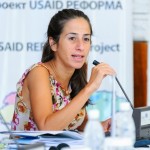 Head of Extractive Industries, Columbia Center on Sustainable Investment
Head of Extractive Industries, Columbia Center on Sustainable InvestmentPerrine Toledano Head of Extractive Industries, Columbia Center on Sustainable Investment
Perrine Toledano heads the Center’s focus on extractive industries and sustainable development that she co-developed in 2010. She leads research, training and advisory projects on fiscal regimes, financial modeling, leveraging extractive industry investments in rail, port, telecommunications, water and energy infrastructure for broader development needs, local content, revenue management, contract transparency and optimal legal provisions for development benefits. To this traditional portfolio, she has recently added research and advisory work on the impact of the energy transition and the Sustainable Development Goals on extractive industry investments and resource rich countries. She has led projects in DRC, Liberia, Paraguay, Mozambique, Sierra Leone, Tanzania and Timor-Leste, and assisted many more government teams remotely. She is a research advisor at the The Jerusalem Institute for Policy Research, Milken Innovation Center. She also jointly developed curricula for a masters and an executive course on extractives and sustainable development taught at Columbia University. She is the co-editor of two volumes published by Columbia University Press: Rethinking Investment Incentives: Trends and Policy Options and The New Frontiers of Sovereign Investment. Prior to joining CCSI, she worked as a consultant for several non-profit organizations, including the World Bank, DFID and Revenue Watch Institute, and private sector companies, including Natixis Corporate Investment Bank and Ernst and Young. Her experience includes auditing, financial analysis, IT for capital markets, public policy evaluation and cross-border project management. She has a Masters of Business Administration from ESSEC in Paris, France, and a Masters of Public Administration from Columbia University.
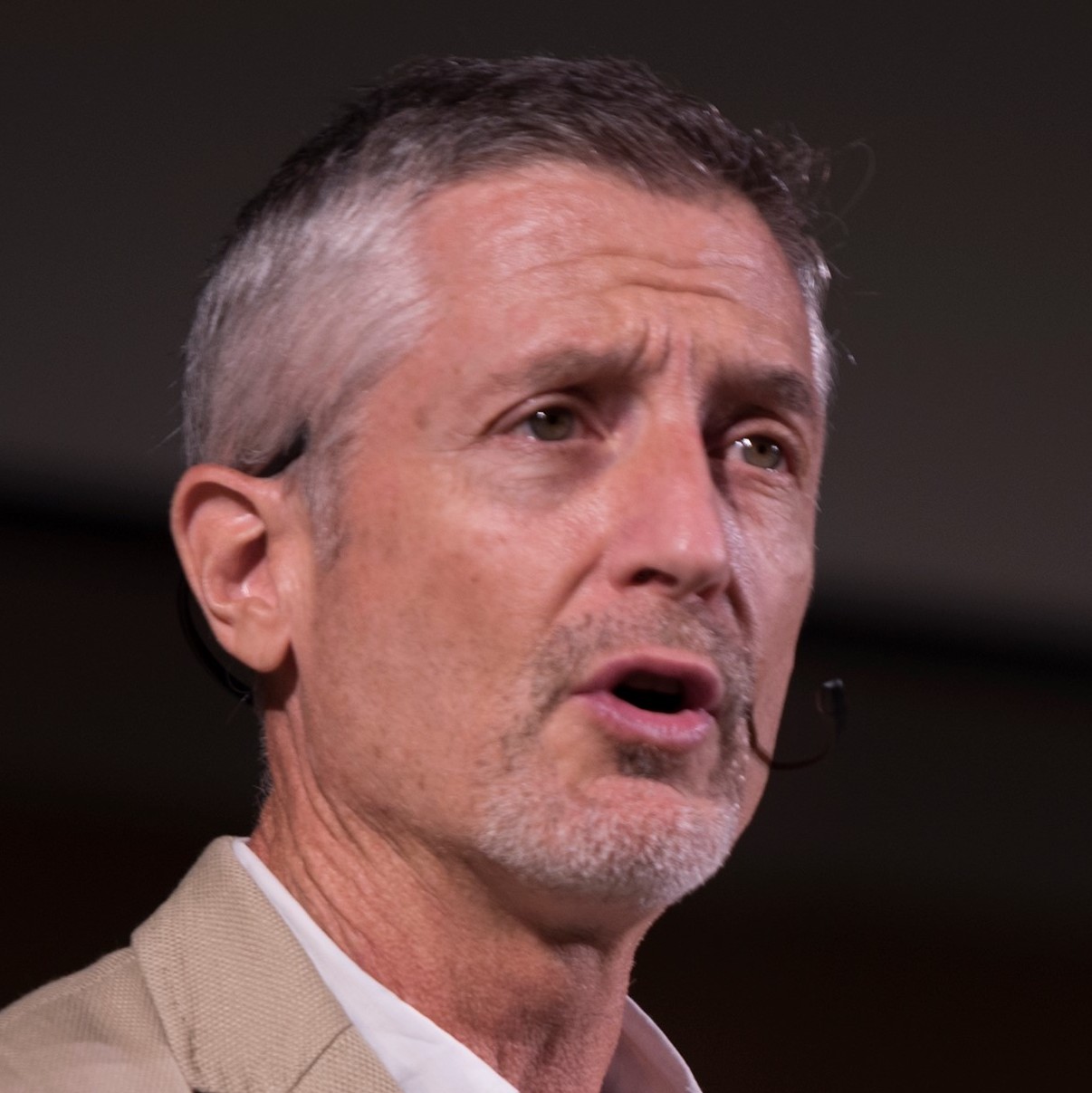 Research Professor, Spanish Council for Scientific Research (CSIC)
Research Professor, Spanish Council for Scientific Research (CSIC)Fernando Valladares Research Professor, Spanish Council for Scientific Research (CSIC)
Fernando Valladares has a Doctorate in Biological Sciences from the Universidad Complutense de Madrid and a Mason H. Hale international award (Canada). He is a research professor at CSIC and director of the Ecology and Global Change group of the National Museum of Natural Sciences. He lectures at the Universidad Rey Juan Carlos in Madrid. He is director of the International Global Change Laboratory (LINCGlobal) and of the University Master’s in Global Change at the Universidad Internacional Menendez Pelayo and CSIC. He lectures on the masters in biodiversity at the Universidad Pablo Olavide in Seville and Universidad Rey Juan Carlos in Madrid. He was chairman of the Spanish Terrestrial Ecology Association.
He has published over 300 scientific studies as articles and books. He has given more than 150 talks and courses at over 25 universities and research centres around the world. His interest in popularising science in general and the ecology of global change in particular has led him to contribute to numerous radio and television programmes and to various sections of the eldiario.es and Público newspapers.
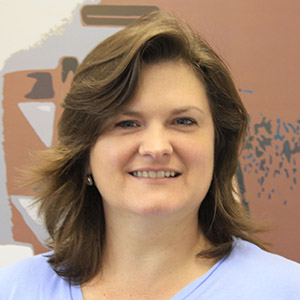 Director, Bonn Center for Local Climate Action and Reporting
Director, Bonn Center for Local Climate Action and ReportingMaryke van Staden Director, Bonn Center for Local Climate Action and Reporting
As Director of ICLEI’s carbonnTM Center (Bonn Center for Local Climate Action and Reporting), Maryke leads ICLEI’s approach to integrated climate action, working with all 23 ICLEI offices that serve ICLEI’s global network of 1,750 local and subnational governments in more than 100 countries.
Maryke is keenly exploring a just transition to a sustainable future, access to clean energy and 100% renewable energy, security and safety of local communities in a changing world, and enabling local governments in exploring a holistic approach to sustainable development.
Building on a career of more than 25 years, she transitioned from national government to NGO space, where she led the Scientific Projects Unit of the International Solar Energy Society before joining ICLEI Europe in 2006 and the ICLEI World Secretariat in 2013. Today, she focuses on guiding all levels of governments on integrated Measuring, Reporting and Verification (MRV) to track and analyze the impact of climate action, and understand action and investment needs. The close inter-relationship between climate change mitigation, resilience, sustainable development and community protection is part of her journey of exploration and fascination – people, planet, place to be.
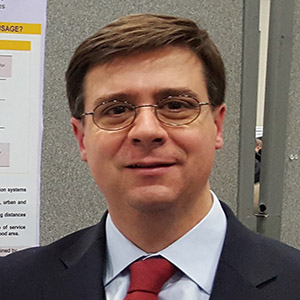 Professor, Department of Transportation Engineering, Urban and Regional Planning at Universidad Politécnica de Madrid
Professor, Department of Transportation Engineering, Urban and Regional Planning at Universidad Politécnica de MadridJosé Manuel Vassallo Professor, Department of Transportation Engineering, Urban and Regional Planning at Universidad Politécnica de Madrid
José Manuel Vassallo is Professor in the Department of Transportation Engineering, Urban and Regional Planning at Universidad Politécnica de Madrid, Spain. He is also a member of the academic staff of the Transportation Research Centre (TRANSyT). He was research fellow at the Harvard Kennedy School of Government. Presently, José Manuel Vassallo teaches “Socioeconomic Appraisal of Infrastructure Projects” and “Infrastructure Financing”. His research activity during the last few years has been focused on transportation management and business models, freight economics, transport regulation, and socioeconomic appraisal of transport policies. In his academic career, he has published five books and more than eighty papers in prestigious journals. José Manuel Vassallo has also received several awards for his research and publications. He has worked as a consultant for many private companies, for the Governments of Spain and Chile, and also for international organizations such as the World Bank, the Andean Corporation of Development, the International Transport Forum and the European Investment Bank. Currently, he is member of the Advisory Board of the Ministry of Transportation of Spain.